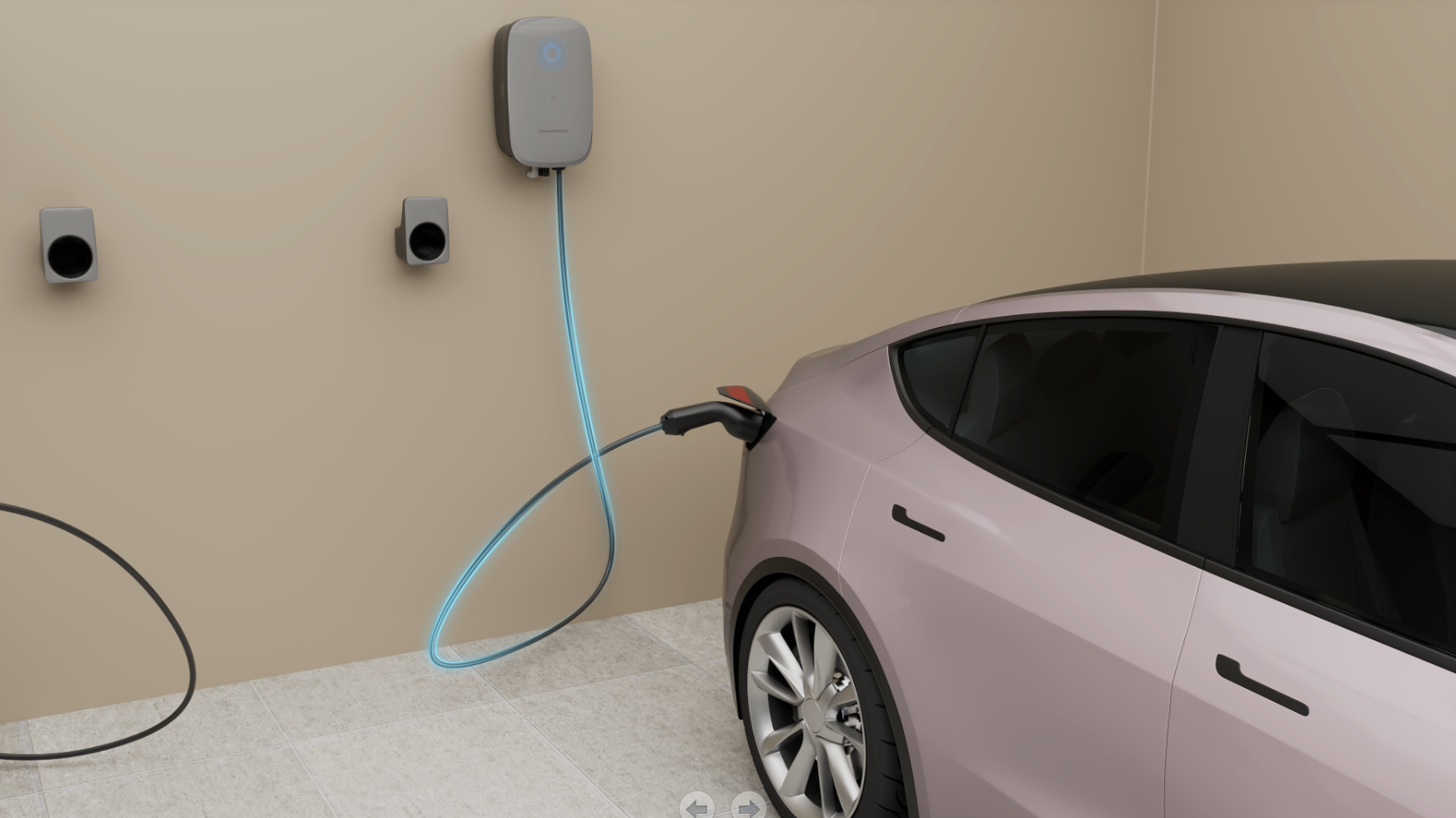About a decade ago, electric vehicles began making their mark in the transportation industry. However, as of 2016, only approximately 0.77 million EVs had been sold, and a meager 0.20 million EV charging infrastructures were installed globally. Fast forward to September 2023, and these numbers have skyrocketed to 10.64 million sold EV units, accompanied by over 1.9 million electric vehicle charging infrastructures worldwide.
In light of this significant growth, the convenience of EV charging infrastructure becomes increasingly evident. This is where an AC charger becomes a lifesaver. In this exploration, we will dive into how these cutting-edge devices are reshaping the way we charge electric vehicles, bringing efficiency, accessibility, and sustainability to the forefront of the automotive revolution.

Advantages of AC Chargers in EV Charging Infrastructure
AC chargers in EV charging infrastructure not only offer convenience but also present a host of benefits that make them a preferred choice for many electric vehicle owners. Let's explore the myriad advantages that AC chargers bring to the table.
● Easy Accessibility
AC chargers offer unparalleled accessibility, providing EV owners with the flexibility to charge their vehicles at various locations, including homes, workplaces, and public spaces. With widespread availability, users can conveniently integrate charging into their daily routines, making electric vehicles a practical and viable choice for a broader audience.
● Cost-effective Compared to DC Fast Charger
One of the key advantages of AC chargers is their cost-effectiveness when compared to DC fast chargers. The installation and maintenance costs associated with AC chargers are generally lower, making them an attractive option for businesses and municipalities alike. This affordability contributes to the wider adoption of electric vehicles and the growth of EV charging infrastructure.
● Compatibility with a Wide Range of EVs
The compatibility of some AC chargers with a wide range of electric vehicles (EVs) can be attributed to the standardization of charging protocols. Some AC chargers adhere to industry standards, such as the OCPP 1.6 J. These standards define the physical connector and communication protocols, ensuring a uniform interface for EVs. EV owners can confidently rely on these AC chargers, knowing that they can efficiently charge their vehicles regardless of the brand or specifications, fostering a standardized charging ecosystem.
● Versatility in Charging Speeds
AC chargers come in various power ratings, commonly expressed in kilowatts (kW). The charging speed is directly correlated with the power output of the charger. Higher-power AC chargers can deliver more electricity to the vehicle, resulting in faster charging times.
Providing different charging speeds caters to the diverse needs and preferences of electric vehicle owners. For example, users charging at home overnight may opt for a slower charging speed to maximize energy efficiency, while those needing a quick top-up at a public charging station might choose a faster charging option to minimize downtime.
AC Chargers Are Building a Sustainable Future
In forging a shared and sustainable future, AC chargers emerge as pivotal players in shaping a cleaner and greener transportation landscape. Their multifaceted role encompasses several key aspects:
● Energy Efficiency and Reduced Environmental Impact
AC chargers contribute significantly to energy efficiency, optimizing the charging process and minimizing wastage. By providing a more controlled and stable charging environment, AC chargers enhance the overall efficiency of electric vehicle charging. This efficiency not only translates into shorter charging times but also reduces the environmental footprint associated with energy consumption, aligning with the broader goals of sustainability.
● Integration with Renewable Energy Resources
The synergy between AC chargers and renewable energy sources marks a crucial step towards sustainability. Many AC charging stations are designed to integrate seamlessly with solar, wind, or other renewable energy systems. This integration allows electric vehicles to be charged using clean energy, further diminishing dependence on non-renewable resources and lowering the carbon footprint of the entire transportation sector.
● Contribution to a Cleaner Transportation Ecosystem
AC chargers play a vital role in fostering a cleaner transportation ecosystem by facilitating the widespread adoption of electric vehicles. As electric vehicles become more accessible and convenient to charge, the overall emissions from the transportation sector decrease. AC chargers, through their ease of use and compatibility with a variety of electric vehicle models, contribute to the transition away from traditional combustion engine vehicles, promoting cleaner air quality and reduced environmental impact.
Recommendations of Sungrow AC22E-G2
Sungrow's 22 kW AC Charger for Electric Vehicles stands out as a reliable and versatile solution for modern electric vehicle charging needs. Equipped with a standard Type 2 charging plug (or an optional one with a shutter), it ensures compatibility with different electric vehicles, making it a practical choice for diverse users.

The AC22E-G2 is designed with safety and compliance at its core, featuring integrated AC and DC fault current detection to prevent charging accidents. It is EMC Class B certified, ensuring safe operation in public and residential areas by minimizing electromagnetic interference. The charger's IP55 rating makes it resilient to outdoor elements, including dust and water jets.
This 22kW AC charger is user-centric, offering a straightforward installation process with wall-mounting or stand-column options. It includes a MID-certified meter for precise electricity usage tracking and supports various authentication methods such as RFID and the iEnergyCharge App.
The AC22E-G2 also enables smart management through load balancing and control via an app, providing users with a convenient and efficient charging experience. Its practical and intuitive design is further emphasized by its wide working temperature range and certifications, including CE, CB, and UKCA.
Conclusion
Embracing the power of AC chargers represents a pivotal step toward unlocking the future of EV charging infrastructure. Sungrow's 22 kW AC Charger, with its versatile Type 2 plug and advanced safety features, exemplifies the efficiency and reliability needed for the evolving landscape of EV technology. They not only address the present needs of users but also anticipate the demands of a rapidly advancing electric vehicle landscape.
Besides AC chargers, Sungrow offers a wide range of EV charging solutions, including DC chargers and iEnergyCharge big data platform. Whether you are searching for an AC charger supplier or a DC fast charger manufacturer, Sungrow will be a good choice.